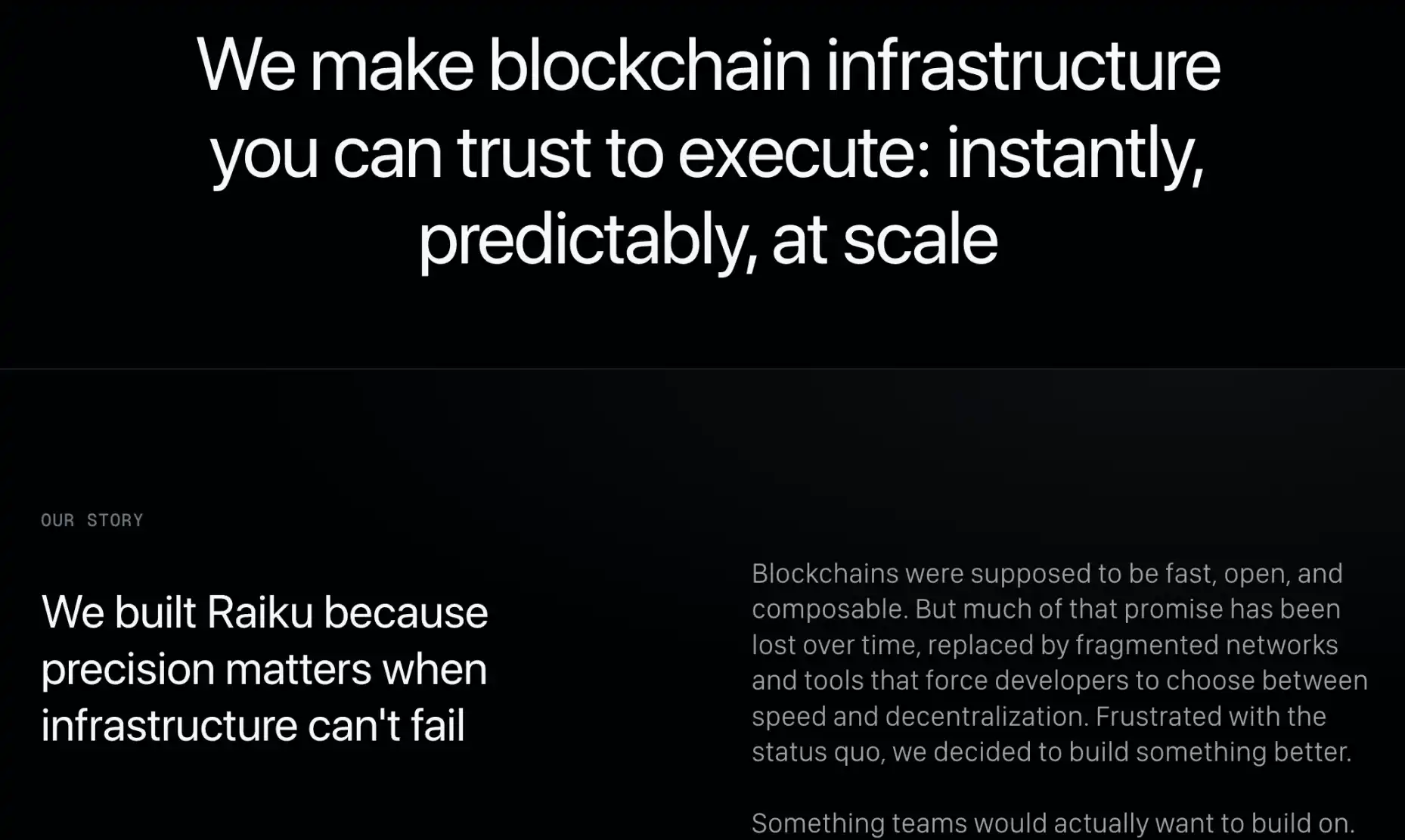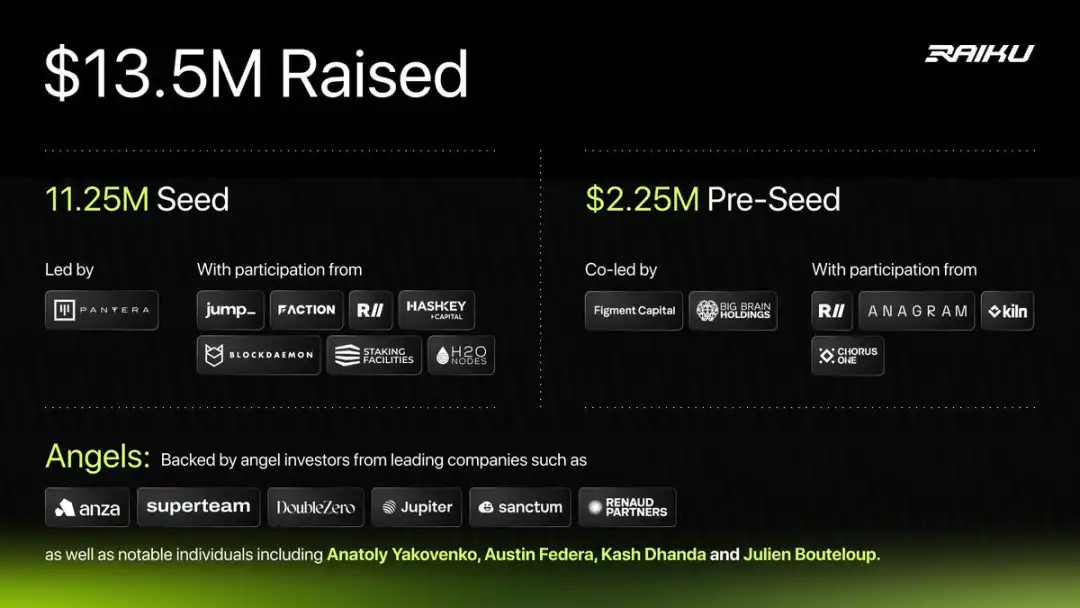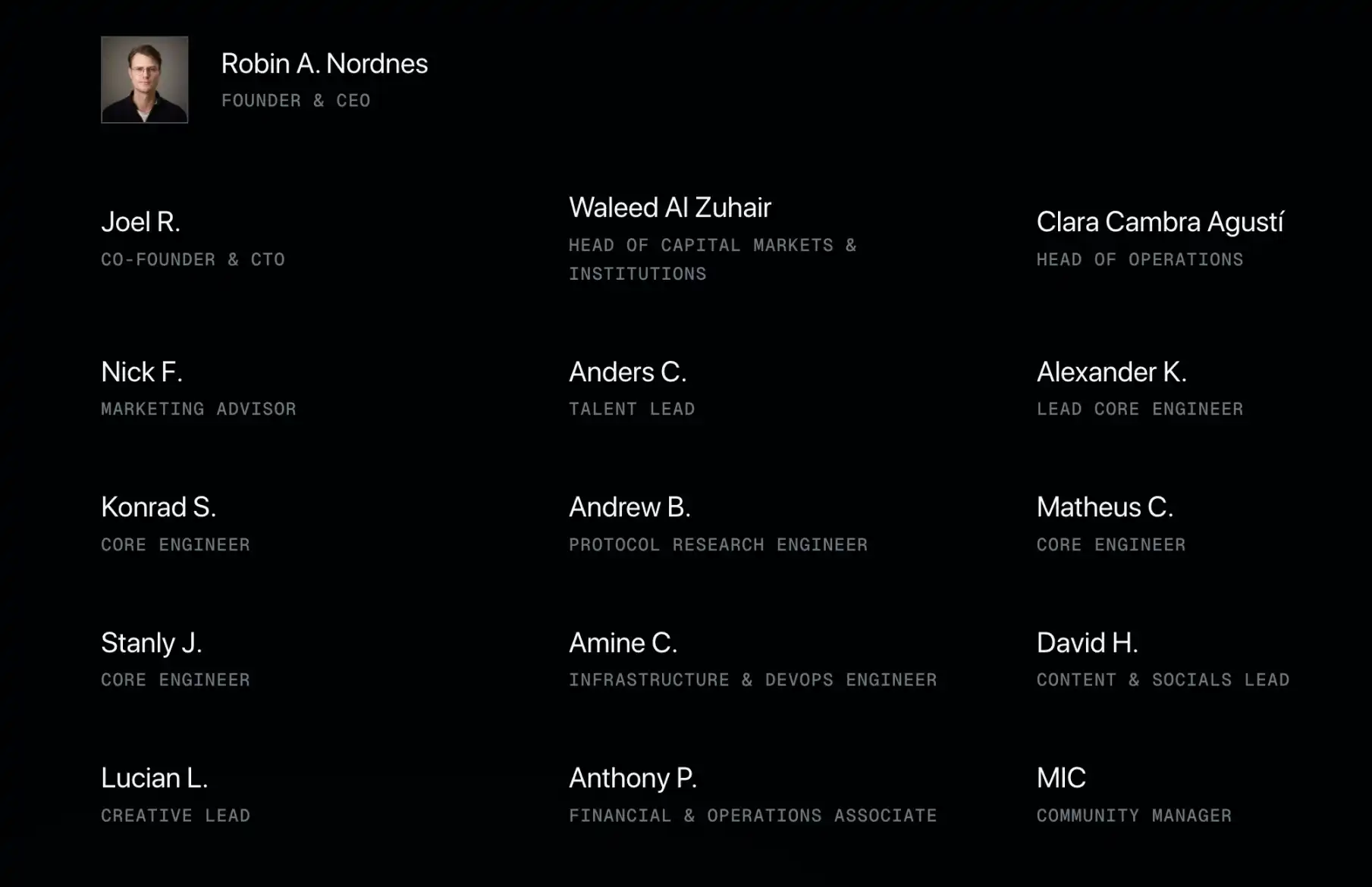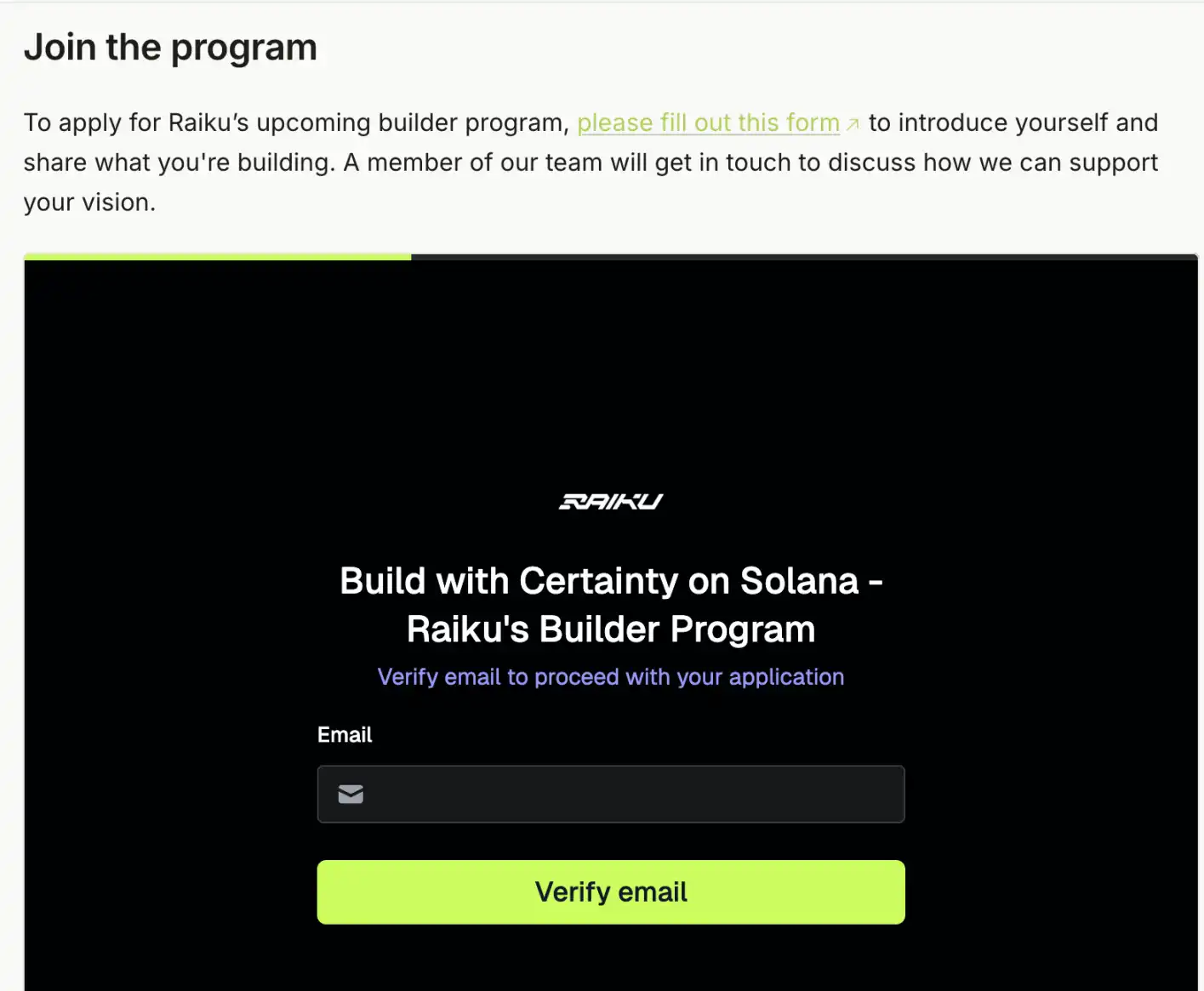Original Title: "Overview of the Latest Financing in the SOL Ecosystem: Transaction Certainty Infrastructure Raiku"
Original Author: Alex Liu, Foresight News
Raiku is a "high-speed protocol built on Solana" that provides "guaranteed transaction packaging, low-latency performance, and reliable transaction execution." By introducing a programmable coordination layer, it enables developers to reserve block space in advance and schedule transactions precisely, thereby avoiding execution uncertainty caused by network congestion.
In simple terms, Raiku acts like a "fast lane" or "smart traffic control" added to the Solana blockchain, allowing financial-grade applications that require high speed and precision to execute transactions accurately and predictably, even under heavy network pressure.

Project Mechanism
Raiku's design does not involve creating new sidechains or shards but instead inserts a parallel execution layer and scheduling engine into the existing Solana validator network. The official statement claims that its architecture adopts a "high-performance block building model," relying on Solana's existing validator nodes to ensure that transactions can be guaranteed (Guaranteed) to be on-chain under any circumstances.
According to official sources, even under extreme pressure, Raiku can maintain system stability and achieve deterministic execution—meaning that once a transaction is submitted, its final execution result can be reliably predicted. Additionally, Raiku emphasizes ultra-low latency performance, reportedly achieving pre-confirmation times of less than 30 milliseconds. Developers can easily integrate (the official claim is that only a small amount of code is needed) the features provided by Raiku, such as reserving block space in advance (up to 60 seconds ahead), ensuring "guaranteed" execution of transactions even during peak trading periods.
At the same time, Raiku has designed a bidirectional incentive mechanism for validators and developers: validators can earn new non-MEV (Maximum Extractable Value) revenue streams by running Raiku's auxiliary nodes, selling predictable block space to application parties; developers can pay to reserve future block resources to lock in certain execution timing.
Financing Situation
On September 23, Raiku announced the completion of a total of $13.5 million in seed and pre-seed financing. The seed round raised $11.25 million, led by the crypto venture capital firm Pantera Capital, with other participants including Jump Crypto, Lightspeed Faction, HashKey Capital, and others; the pre-seed round raised $2.25 million, co-led by Figment Capital and Big Brain Holdings, with follow-on investments from Reciprocal Ventures, Anagram, and others.

Notably, angel investors in this round of financing included Solana co-founder Anatoly Yakovenko and former strategy head of the Solana Foundation Austin Federa, which may indicate that Raiku has gained recognition and resource support from within the ecosystem.
This round of financing was announced by the Raiku team based in San Francisco, California, and the company stated that it will use the funds to further improve technology and products to meet the needs of large institutions for transaction certainty.
Team Background
Raiku was initially proposed at the end of 2023 by a group of Solana researchers and experienced developers who, reflecting on the limitations of existing on-chain architectures, aimed to create an infrastructure that could "transform physical limits into guarantees." This project received early support from significant ecosystem participants, including the Solana Foundation and Superteam.
The founding team members of Raiku have accumulated rich experience in Web3, FinTech, and other fields.

According to public information, Raiku's CEO and co-founder Robin Nordnes previously served as the technical director at the blockchain venture capital firm Outlier Ventures, focusing on research in blockchain networks and technology strategy. In a media interview, Nordnes stated that he has long been concerned with the institutionalization of the crypto industry, believing that "for institutional-level clients and advanced DeFi applications, speed is no longer enough; what they need is predictable certainty." This concept is precisely the starting point of Raiku's design, which aims to provide micro-level execution predictability through technological means.
Additionally, the Raiku team has established partnerships with several leading Solana validator operators. According to official disclosures, mainstream validators, including Figment, Kiln, Evestake, Staking Facilities, Blockdaemon, Chorus One, and H2O Nodes, have announced their participation in Raiku's ecosystem construction. These partners not only assist Raiku in the deployment and data accumulation during the testnet phase but also provide diverse validator support and infrastructure assurance for the future mainnet. Overall, Raiku's technical and management team has a diverse background and closely collaborates with the core Solana ecosystem, demonstrating strong industry resource integration capabilities.
Participation Method
Currently, the Raiku protocol has entered the testing phase. The official announcement states that Raiku has launched on the Solana testnet and is continuously iterating and improving, with plans to launch the mainnet in 2026. For community and developer participation, the Raiku team is actively conducting various outreach activities. According to public information, the team has published documents and guides on its official website and social media, inviting interested node operators to apply to run Raiku validator nodes, while also welcoming developers to use Raiku's development tools to build projects and recruiting talent in the blockchain and distributed systems fields.
Currently, Raiku's website provides technical documentation and contact channels for participating in the testnet, allowing interested developers and investment institutions to obtain the latest testing information and development support through these official channels. Overall, Raiku is in a rapid development stage, and anyone willing to participate in innovative applications on the Solana blockchain has the opportunity to join through the testnet and experience the performance and certainty improvements it offers.

The Raiku team believes that as decentralized finance (DeFi) and other capital market applications continue to expand, the demand for predictable transaction execution is becoming increasingly important. Raiku's vision is to enable the Solana network to provide the execution certainty required by enterprises while ensuring high throughput. This vision is supported by multiple capital and technical forces and indicates that the Solana ecosystem will welcome more infrastructure innovations aimed at extreme performance requirements. As Raiku's development progresses, observers generally expect that the project will attract more financial institutions and large applications to the Solana network, thereby advancing the entire ecosystem towards a more "controllable, high-speed, and scalable" maturity.
免责声明:本文章仅代表作者个人观点,不代表本平台的立场和观点。本文章仅供信息分享,不构成对任何人的任何投资建议。用户与作者之间的任何争议,与本平台无关。如网页中刊载的文章或图片涉及侵权,请提供相关的权利证明和身份证明发送邮件到support@aicoin.com,本平台相关工作人员将会进行核查。




